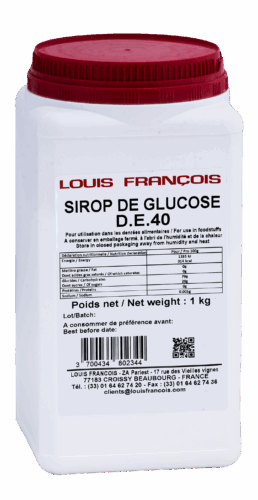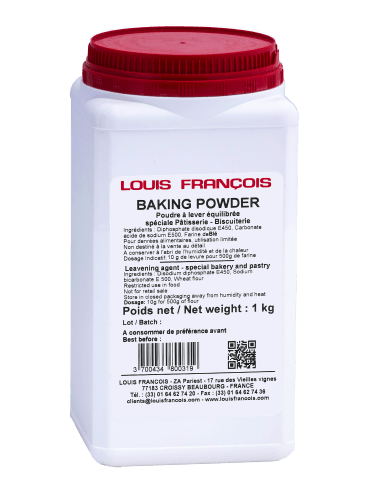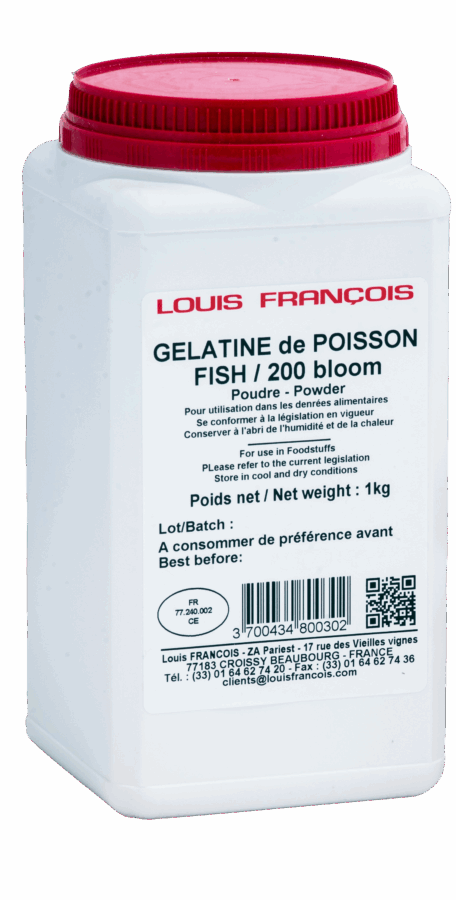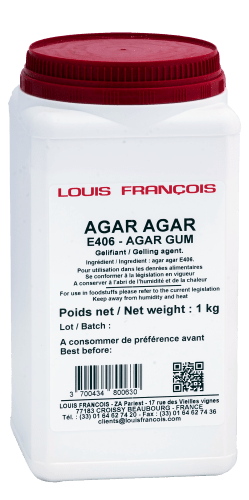Galliasorb
Applications : Confectionery, pastries, beverages
Properties : Good sweetening power and low glycemic index
Dosage : 3 to 5% to be adapted to recipes
The
product in detail
Description
Sorbitol Louis Francois is derived from corn starch. It is obtained by hydrogenation of D-glucose. It is an odorless liquid product with a mild flavor.
Sorbitol is naturally present in apples, pears, cherries, peaches and mountain ash.
Louis François sorbitol :
- Stabilizing agent
- Very soluble in water, slightly soluble in ethanol
- Retains and stabilizes moisture (controls water activity, Aw)
- Bacteriostatic: limits the growth of certain microorganisms
- Preserves dough plasticity
- Not a sugar: does not color pasta
Sorbitol Louis François is used for baking cereals (cookies, viennoiserie), ganaches and fillings, marzipan, spreads and coulis, confectionery, ice cream and more generally in low-glycemic products.
Dosage and application
Dosage will vary widely according to use. Typically used between 3 and 5%, it is processed like beet or cane sugar.
Caution: At 10% or more in a recipe, it must be declared as a laxative.
Availability
Kosher
Packaging and storage
Packaging options
- 1kg (item code: )
- 25kg (item code: 707.00 F)
Store in closed packaging in a dry place at room temperature (15 to 25°C).
Do you have any questions about this product?
Thanks to its ability to retain moisture, sorbitol helps prolong the shelf life of baked goods, keeping them soft for longer, even in dry conditions.
Yes, in large quantities, sorbitol can have a laxative effect, as it draws water into the colon. The effects generally start to be felt above 10 to 20 g of sorbitol a day.
Yes, sorbitol is perfect for no-sugar-added or diet products, as it has a low glycemic index and a lower caloric value than conventional sugar. It cuts calories without sacrificing sweetness.
Yes, sorbitol is sometimes used in chocolate-making to prevent sugar crystallization, particularly in ganaches and chocolate bonbons. It ensures a smoother, more homogeneous texture.
Yes, sorbitol is an excellent substitute for sugar in no-sugar-added products. It maintains sweetness with minimal impact on blood sugar, making it a common choice in diet products.
No, sorbitol cannot completely replace sugar. It is often combined with other sweeteners to compensate for its low sweetening power (50-60% of cane or beet sugar).
Sorbitol is a sugar alcohol naturally present in certain fruits (such as apples and pears). It is also produced from glucose and used as a texturizing agent in various food products.
Sorbitol is widely used in the manufacture of ice creams and sorbets for its ability to prevent the formation of ice crystals (anti-crystallization power). The result is a smooth, creamy texture that lasts throughout the shelf life of the product.
Sorbitol can be used up to 10% to 20% of the total weight of sugar in a recipe, depending on the desired effect.
Sorbitol is used in pastry-making for its moderate sweetening power, but also for its ability to retain moisture. It helps keep products soft and fresh for longer, while being lower in calories than conventional sugar.

Louis François tip
One use of sorbitol is to incorporate it into baked goods to improve their softness and shelf life, while lowering the recipe's overall glycemic index. For example, in a brioche, you can replace some of the sugar with sorbitol to prolong the product's freshness, while maintaining its sweetness without increasing calories. Bonus: a lower sweetening power allows you to "desugar" your brioche.


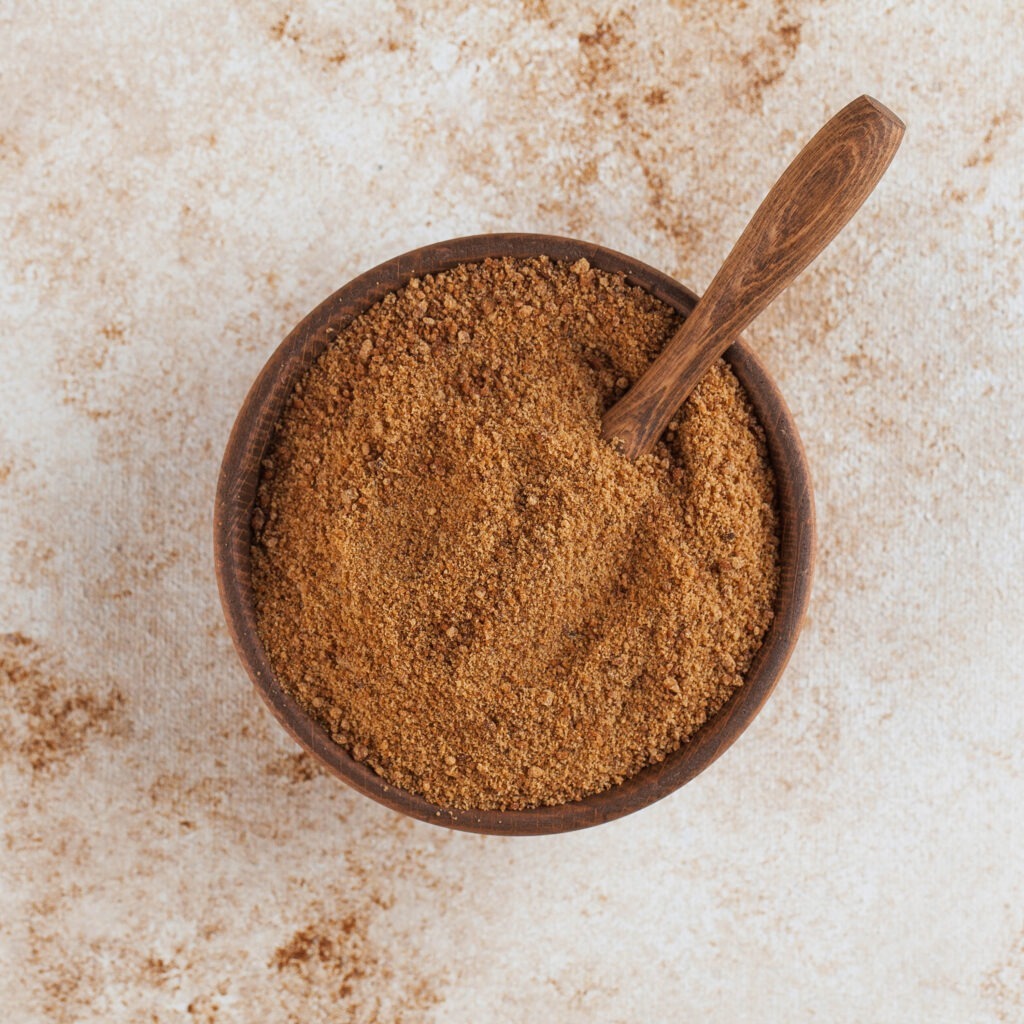
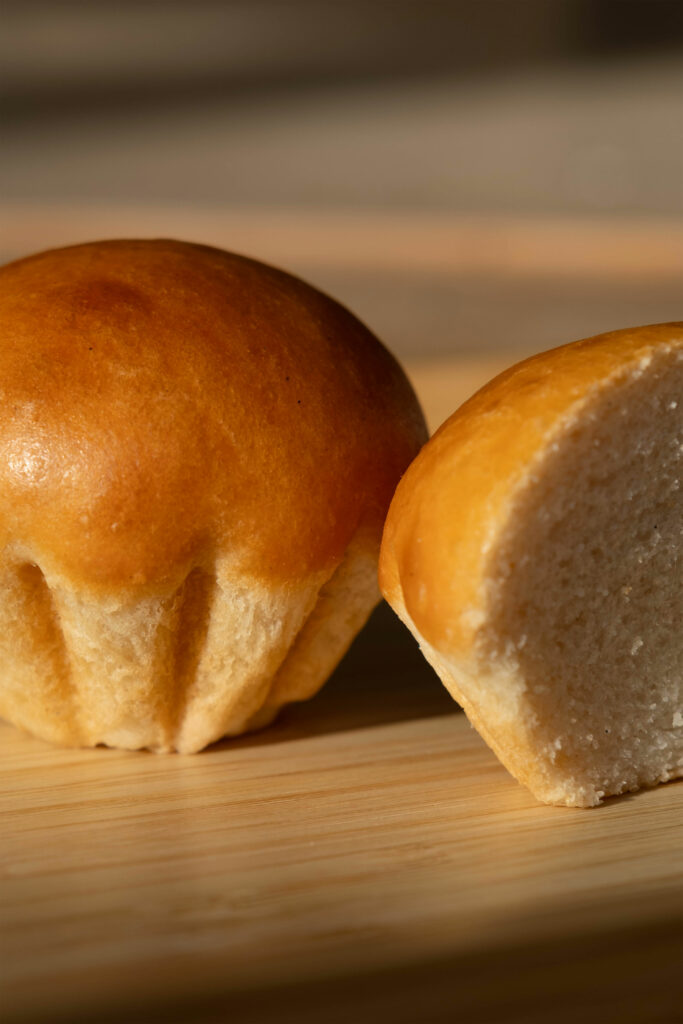


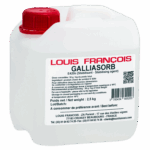

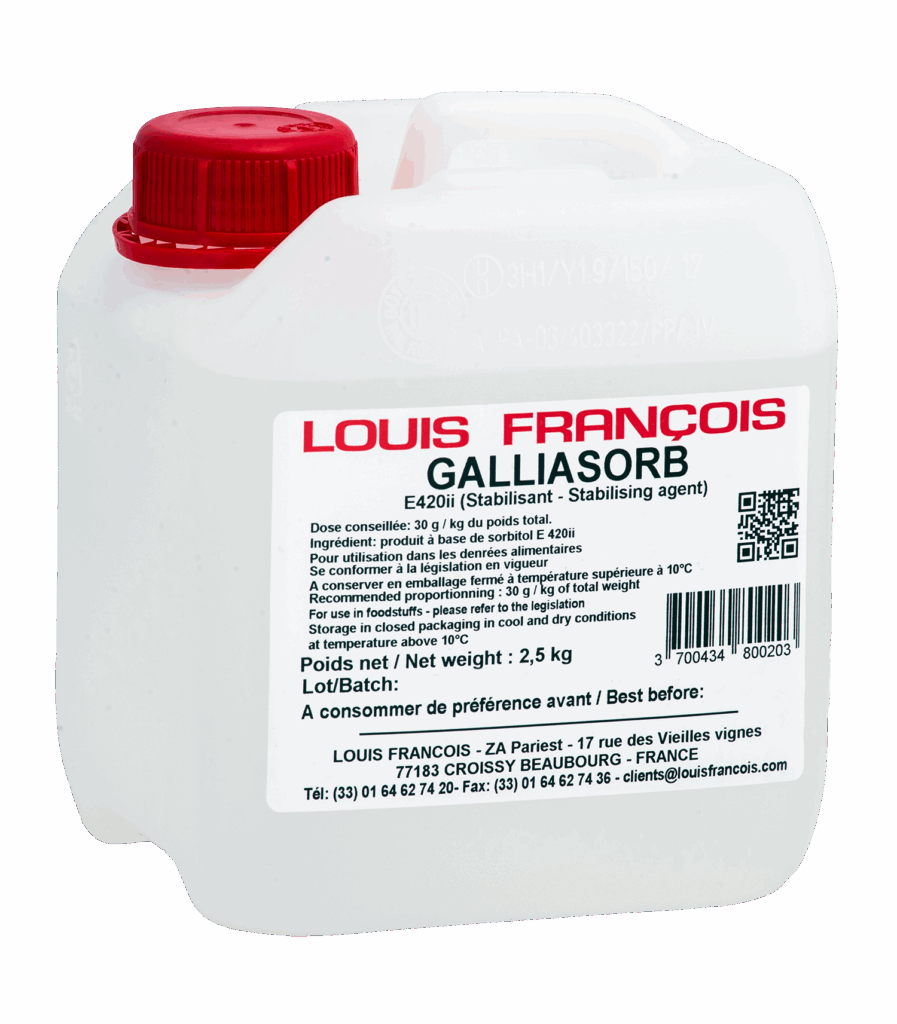
 Sugars
Sugars